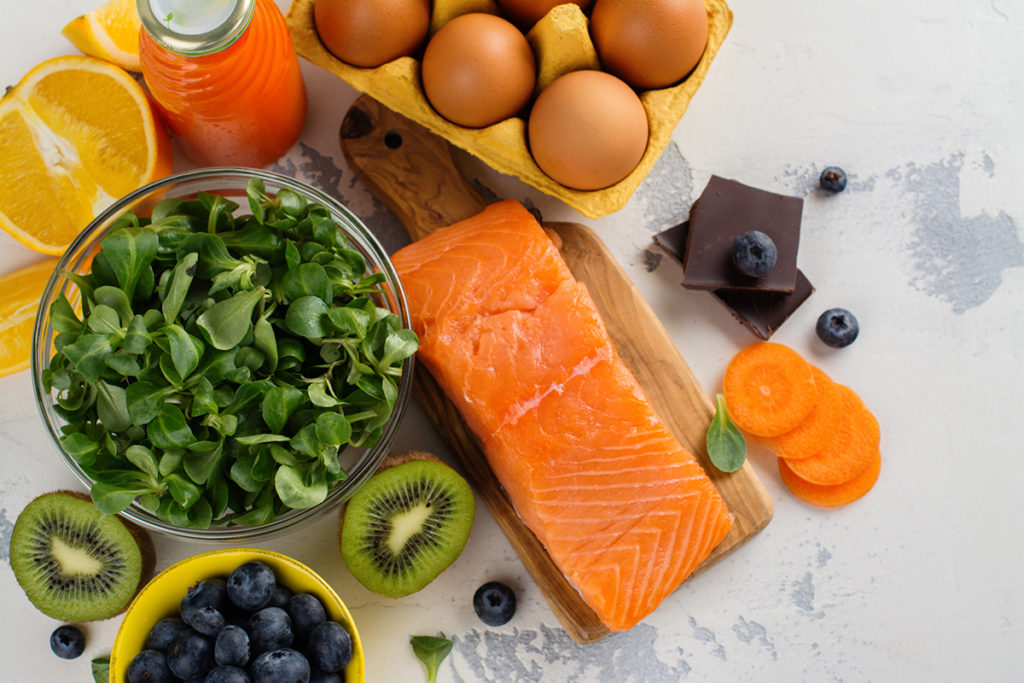
The eyes are complex organs that help us process the world. It is important to keep them healthy and functioning properly with regular exams, as well as good lifestyle choices. When it comes to eye health and vision, what you consume is vital. From vitamin B to certain proteins, our food choices can greatly impact our eyes.
Continue reading as eye care specialist Dr. Stein explains how nutrition plays a role in the health of your eyes.
The Importance of Nutrition
A balanced diet can provide all of the nutrients necessary to maintain eye health and good vision. There are many nutrients that have protective properties and can support healthy eye function. Because of this, nutrients can help reduce the risk associated with age-related eye diseases that can jeopardize your vision and reduce your quality of life.
Although some eye conditions rely on many factors, nutrition definitely plays a role and should be given special attention.
The following nutrients are a few among many that are linked to good eye health:
Vitamin A: This important nutrient can support the photoreceptors in the eye. Without proper levels of vitamin A, you can develop conditions such as poor night vision and dry eyes.
Lutein & Zeaxanthin: Lutein and zeaxanthin have been found to lower the risk of certain eye diseases. Dark, leafy greens and vegetables such as corn, peas, and broccoli are good sources of these nutrients.
Vitamin C: Also known as ascorbic acid, vitamin C is found in high concentrations in the aqueous humor of the eye. By increasing your vitamin C consumption, you increase the concentration of this important nutrient in the eye. A diet rich in vitamin C can help reduce the risk of cataracts. To up your vitamin C intake, look to the foods such as citrus fruits, guava, and bell peppers.
Zinc: This mineral can be found in the retina and underlying vascular tissue. A zinc deficiency can lead to night blindness, so it is important to include this essential mineral in your diet. Foods such as red meats, oysters, whole grains, certain nuts and seeds, and dairy products can help you get more zinc in your diet.
Can a Poor Diet Cause Eye Problems?
Poor diet and vitamin deficiencies can lead to problems with the eyes. For example, a deficiency in vitamin A is a common cause of blindness. Those that may be at risk of vitamin A deficiency include:
- Pregnant or breastfeeding women
- Infants
- Individuals with cystic fibrosis
- Individuals who experience chronic diarrhea
Talk to an Eye Expert
A healthy lifestyle should be part of a comprehensive eye health plan that includes the expert care of a skilled ophthalmologist, such as Dr. Raymond Stein, who can help maintain and improve your eye health and vision. To learn more about improving your vision, contact Dr. Stein’s office to schedule a consultation.
